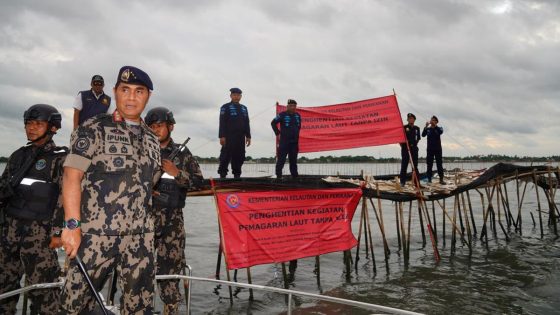The Ministry of Marine Affairs and Fisheries (KKP) has announced a fine of Rp18 million for violations related to ocean space utilization. This decision stems from the ongoing investigation into the illegal sea fence in Tangerang, Banten, which has raised concerns about environmental regulations. How will this impact marine conservation efforts in Indonesia?
- Rp18 million fine for marine space violations
- Fine based on Government Regulation No. 85/2021
- Penalty calculated per hectare, not kilometer
- Investigation ongoing for sea fence ownership
- Administrative sanctions to be enforced
- Potential criminal charges under police review
Understanding the Rp18 Million Fine for Ocean Violations in Indonesia
What does this fine mean for the future of marine conservation in Indonesia? The KKP’s recent announcement underscores the importance of compliance with marine space regulations. This fine is calculated based on the area affected, specifically Rp18.6 million per hectare, not per kilometer as previously reported.
Key Details About the Ocean Space Utilization Fine
The fine is part of a broader effort to regulate ocean space use in Indonesia, ensuring that activities align with national zoning plans. Here are some essential points regarding the fine:
- The fine is set at Rp18.6 million per hectare.
- It applies to activities that violate marine spatial planning regulations.
- The investigation into the sea fence’s ownership is ongoing.
- Potential criminal charges may follow for violators.
Implications for Marine Conservation in Indonesia
This fine could serve as a deterrent against illegal ocean space usage. By enforcing strict penalties, the KKP aims to protect marine ecosystems and ensure sustainable practices. The ongoing investigation into the sea fence highlights the government’s commitment to addressing violations and promoting responsible ocean management.
Future of Marine Regulations in Indonesia
As the KKP continues to enforce marine regulations, we can expect more stringent measures to protect Indonesia’s rich marine biodiversity. The collaboration with other governmental bodies indicates a comprehensive approach to tackling illegal ocean activities. How will these actions shape the future of marine conservation in the region?
In conclusion, the Rp18 million fine for ocean violations signals a crucial step toward better marine management in Indonesia. As regulations tighten, the hope is to foster a sustainable relationship with the ocean that benefits both the environment and local communities.
































